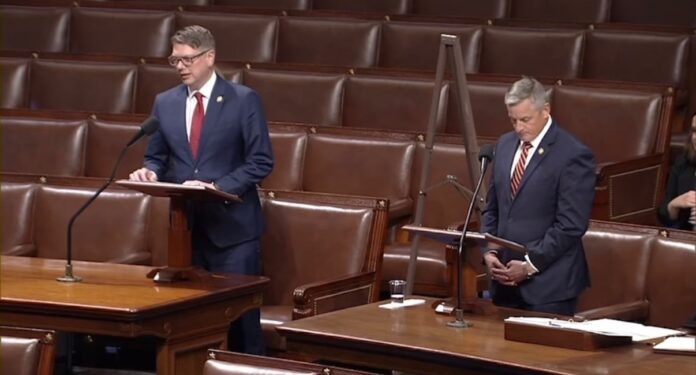
The US House of Representatives on Wednesday passed House Joint Resolution 106, legislation introduced by Congressman Nick Begich to overturn the Bureau of Land Management’s Central Yukon Resource Management Plan.
The vote makes way for a 211-mile industrial-use road that would allow the development of the Ambler Mining District, a state mining district that is unreachable without access across federal land. The access to the mining district was guaranteed by law.
The first Trump administration issued a federal permit for the project in 2020, but the Biden Administration axed the permit.
The Central Yukon RMP, finalized by the Biden administration in 2024, governs 56 million acres in north and central Alaska, stretching from the Brooks Range to the Yukon River. The plan set new restrictions on development by designating more than 3.6 million acres as “Areas of Critical Environmental Concern,” limiting leasing opportunities, and continuing longstanding land withdrawals.
The Biden plan put more than 13 million acres effectively off-limits, curtailing the state’s ability to pursue oil, gas, and mineral projects, harming Alaska’s economy and prevent the state from contributing to U.S. energy and mineral independence at a time when demand for critical minerals is rising globally.
“The 2024 Central Yukon plan locks up more than 13 million acres of public land and blocks projects vital to our nation’s energy security and economic future,” said Congressman Begich. “With this resolution, we are restoring balance to federal land policy and ensuring that Alaska can responsibly contribute to America’s energy and mineral independence. Alaskans know how to balance stewardship and development, and I am proud to have championed this legislation in the House that restores responsible management of our state’s resources.”
Begich’s resolution seeks to repeal the Central Yukon plan outright in order to:
- Reinforce US energy security by opening new areas for oil and gas development.
- Unlock access to critical minerals used in advanced technologies and defense applications.
- Support major projects such as the Alaska LNG pipeline, which is expected to create more than 10,000 jobs and deliver 3.5 billion cubic feet of natural gas per day.
The Congressional Review Act requires that before a rule can take effect, an agency must submit the rule to both the House of Representatives and the Senate, as well as the Comptroller General. CRA adopts the definition of “rule” under the Administrative Procedure Act but excludes certain categories of rules from coverage. The Central Yukon RMP meets the APA definition of a “rule,” and is subject to CRA’s submission requirements.
The House vote, 215-210, now places the issue squarely before the U.S. Senate, where lawmakers will now decide whether to reject the Central Yukon plan. The outcome could set an important precedent for how federal land in Alaska is managed in the years ahead, balancing national conservation priorities against the state’s push for resource development.